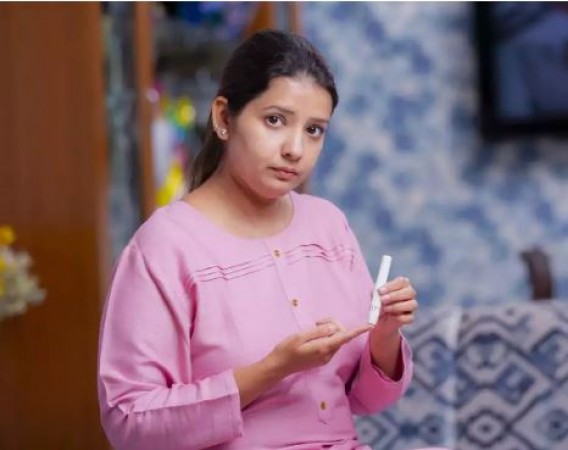
India, a nation known for its rich cultural tapestry and diverse landscapes, is facing a silent health crisis - diabetes. The prevalence of diabetes has surged in recent years, catapulting India to the unenviable position of being the second-highest country in terms of diabetes cases globally.
The alarming increase in diabetes cases in India has set off health alarms across the nation. Factors such as sedentary lifestyles, unhealthy dietary habits, and genetic predispositions contribute to the escalating numbers.
Rapid urbanization has brought about significant lifestyle changes, with an increasing number of people adopting sedentary routines. This shift, coupled with the prevalence of processed and sugary foods, has fueled the diabetes epidemic.
Contrary to earlier trends, diabetes is no longer confined to the older population. The youth are increasingly falling victim to this metabolic disorder, emphasizing the urgent need for preventive measures.
India's healthcare system faces the daunting challenge of catering to the growing diabetic population. Adequate infrastructure, awareness programs, and accessible healthcare are crucial in tackling this health crisis.
While India grapples with its diabetes burden, there is a global frontrunner in the race to combat this epidemic.
Surpassing India, China currently holds the unenviable title of the country with the highest number of diabetes cases. The factors contributing to China's diabetes prevalence mirror those in India, highlighting the shared challenges faced by these Asian giants.
As we delve into the diabetes narrative, Pakistan emerges as a nation facing its own set of challenges.
Pakistan, too, is witnessing a concerning surge in diabetes cases. The interplay of genetic factors, dietary habits, and limited healthcare access contributes to the complexity of the issue.
Socioeconomic factors play a pivotal role in diabetes prevalence in Pakistan. Disparities in income levels and education impact the ability to access proper healthcare and adopt healthier lifestyles.
A lack of awareness and education about diabetes exacerbates the problem in Pakistan. Efforts to educate the population about preventive measures and early detection are crucial in mitigating the impact.
The fight against diabetes requires a united front. Collaborative efforts between nations, sharing best practices, and implementing effective strategies can go a long way in addressing this global health crisis.
Prevention is undeniably the key to curbing diabetes. Investing in education, promoting healthier lifestyles, and ensuring access to affordable healthcare are critical components of a successful prevention strategy.
Empowering communities with knowledge and resources is vital. Grassroots initiatives can play a significant role in creating awareness and fostering a culture of health and well-being.
In the battle against diabetes, communication plays a pivotal role. Crafting personalized and relatable healthcare messages can bridge the gap between medical jargon and public understanding.
Sharing personal narratives of individuals triumphing over diabetes can inspire and motivate others. Human stories have the potential to create a powerful emotional connection, fostering a sense of community in the fight against diabetes.
In the digital age, leveraging social media and other online platforms can enhance the reach of diabetes awareness campaigns. Engaging content that resonates with the audience is key to capturing attention and disseminating crucial information.
Stigma and misconceptions surrounding diabetes hinder effective management. Addressing these issues head-on is essential to create an environment where individuals feel supported in their journey to manage diabetes.
The advent of technology opens new avenues for diabetes management. From wearable devices to mobile applications, embracing technological innovations can revolutionize how individuals monitor and manage their diabetes.
The emotional toll of living with diabetes often goes unnoticed. Integrating mental health support into diabetes management plans is crucial to addressing the holistic well-being of individuals.
Policy advocacy is paramount in the fight against diabetes. Governments must prioritize diabetes on the public health agenda, allocating resources and implementing policies that promote prevention, early detection, and management.
Empowering community health workers can bridge the gap between healthcare providers and communities. These frontline workers play a pivotal role in education, early detection, and ongoing support for individuals with diabetes.
In conclusion, addressing the diabetes epidemic requires a united global effort. Solidarity in health, sharing knowledge, and implementing effective strategies are the cornerstones of a future where diabetes is managed, and its prevalence reduced.
Congress Threatens Transformation of Scindia's Palace in MP Elections: Raj Babbar's Bold Proposal